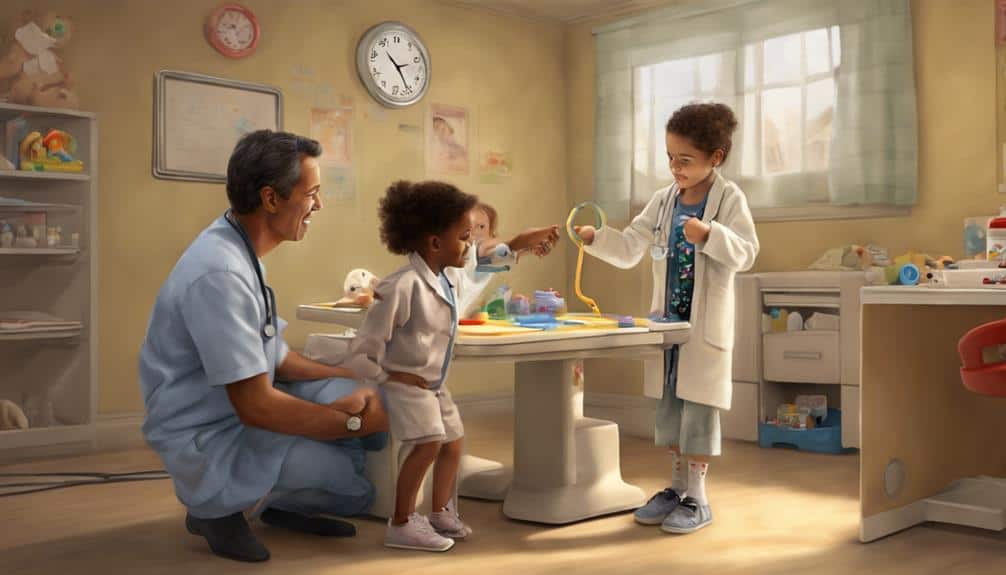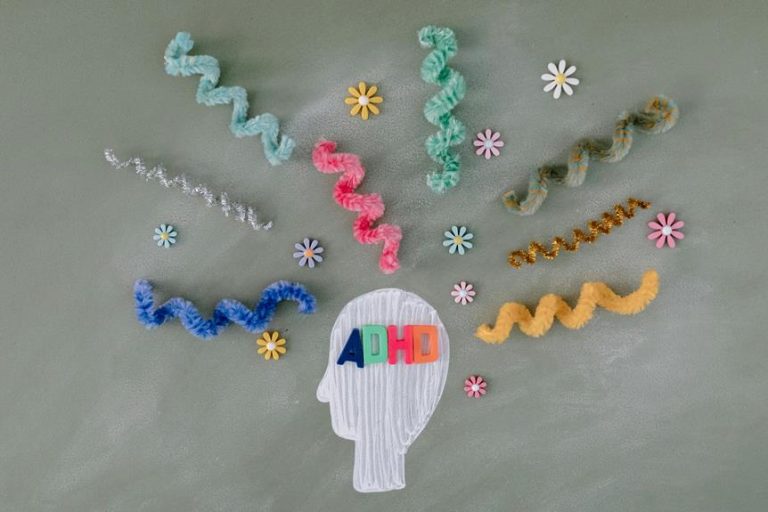Can Pediatricians Diagnose Autism
As a pediatrician, I was intrigued to discover that studies have shown pediatricians to accurately identify Autism Spectrum Disorder (ASD) in children with suspected cases.
However, the question of whether pediatricians can solely diagnose autism remains a point of debate among professionals and caregivers.
While pediatricians play a crucial role in the initial observation and assessment of developmental concerns, the complexity of autism diagnosis often requires a multidisciplinary approach.
So, what factors contribute to this ongoing discussion, and how can pediatricians navigate the challenges of diagnosing autism in clinical practice?
Key Takeaways
- Pediatricians play a vital role in early autism detection during well-child visits.
- Collaborative diagnosis models enhance accuracy and access to specialized evaluations.
- Early signs awareness and screenings by pediatricians can lead to timely interventions.
- Challenges like resource limitations and wait times impact pediatricians' autism diagnostic capabilities.
Pediatricians' Role in Autism Detection

Pediatricians actively engage in observing developmental milestones, behaviors, and interactions during routine well-child visits to detect potential signs of autism in children. As frontline healthcare providers, pediatricians play a vital role in the early detection and diagnosis of Autism Spectrum Disorder (ASD) in children. By closely monitoring a child's developmental progress and behaviors, pediatricians can identify deviations from typical developmental trajectories that may align with the diagnostic criteria for autism. Through their expertise and experience, pediatricians are well-equipped to recognize red flags indicative of autism, such as social communication challenges, repetitive behaviors, and sensory sensitivities.
Early diagnosis is essential for initiating timely interventions that can greatly improve the long-term outcomes for children with autism. When pediatricians accurately assess and refer children for further evaluation by specialists, it paves the way for early intervention services that target the specific needs of the child. By facilitating prompt referrals and collaborating with multidisciplinary teams, pediatricians contribute to a thorough approach to supporting children with autism and their families.
Early Signs and Screening for Autism

Transitioning to our discussion on 'Early Signs and Screening for Autism,' one can observe the importance of recognizing subtle behavioral cues that may hint at potential developmental concerns in young children. When it comes to screening for autism in children, early signs play a pivotal role in early intervention and support. Here are three emotional aspects to consider:
- Heightened Awareness: Recognizing early signs of autism in children can be a mix of emotions for parents, ranging from concern and worry to hope and determination in seeking help and support.
- Empathy and Understanding: Pediatricians must approach screening with empathy, understanding the impact a potential diagnosis can have on families, and providing them with the necessary resources and guidance.
- Timely Intervention: Identifying early signs of autism allows for timely intervention and access to specialized services that can significantly improve a child's developmental outcomes and quality of life.
Being attuned to these emotional aspects while conducting screenings can make a significant difference in the lives of children with autism.
Collaborative Diagnosis Approach for Autism

Implementing a collaborative diagnosis approach for autism involves integrating primary care pediatricians' initial assessments with evaluations by specialist teams to guarantee accurate and thorough evaluations. This collaborative model brings together primary care physicians and a multidisciplinary team (MDT) of autism specialists to conduct thorough assessments for children with autism.
By combining the expertise of pediatricians in recognizing early signs of autism with the specialized diagnostic services provided by autism specialists, this approach guarantees timely evaluations and tailored support planning. Pediatricians play a vital role in the early identification of potential autism spectrum disorder (ASD) concerns and in facilitating referrals to the appropriate diagnostic services.
The collaboration between pediatricians and autism specialists optimizes resources, reduces wait times, and enhances access to accurate assessments, ultimately leading to better support planning for children with autism. This joint effort between primary care physicians and specialized teams underscores the importance of a thorough and coordinated approach to diagnosing autism.
Pediatrician's Support in Autism Intervention

In understanding the importance of early identification and intervention for children with autism, the collaborative role of pediatricians becomes paramount in providing essential support and guidance. Pediatricians are instrumental in the autism intervention process by:
- Screening for early signs of autism during routine well-child visits, enabling timely identification and intervention.
- Providing initial support and referrals to developmental specialists for further evaluation and the creation of personalized intervention plans.
- Assisting families in guiding the diagnostic process and connecting them to appropriate resources and services, fostering a supportive environment for children with autism.
Through their involvement in the multidisciplinary team approach, pediatricians contribute significantly to managing and supporting children with autism spectrum disorder. Their expertise, combined with the collaboration of developmental specialists, ensures that children with autism receive thorough care tailored to their unique needs, promoting development and well-being.
Challenges in Autism Diagnosis by Pediatricians

Traversing the intricate landscape of autism diagnosis poses significant challenges for pediatricians, stemming from the absence of definitive tests and the nuanced nature of clinical judgment. The reliance on clinical judgment can lead to variations in diagnostic accuracy among pediatricians, influenced by factors such as their level of certainty, the child's skills, race, and family history of autism.
Conducting resource-intensive multidisciplinary team assessments, while valuable, can also impact the efficiency of pediatricians in diagnosing autism. Specialist teams facing long wait times may hinder access to therapy for children with autism, underscoring the importance of pediatrician involvement in the diagnostic process. Capacity expansion at the pediatrician level is essential for enhancing timely autism diagnosis, which can ultimately lead to improved outcomes for children with autism and alleviate family distress.
Balancing these challenges requires ongoing education, collaboration with specialists, and a commitment to providing thorough care for children with autism.
Frequently Asked Questions
Who Would Diagnose a Child With Autism?
In diagnosing autism, specialists like developmental pediatricians, child psychologists, child psychiatrists, and pediatric neurologists play pivotal roles. They evaluate developmental milestones, conduct genetic testing, implement early interventions, and collaborate with parents, speech therapists, and behavioral therapists in a multidisciplinary approach for all-encompassing support.
What Kind of Doctor Determines Autism?
Determining autism entails a thorough approach. Pediatricians play a vital role in the diagnostic process by evaluating developmental milestones, communication skills, and behavioral observations. Medical evaluations, family history, and genetic testing aid in early intervention strategies.
Who Else Can Diagnose Autism?
Early intervention is essential. Developmental milestones, behavioral assessments, genetic testing, speech and occupational therapy, sensory processing, social communication skills, school evaluations, and family support are vital for effective diagnosis and management of autism by various specialists.
What Types of Professionals Typically Give the Autism Diagnosis?
As a parent seeking an autism diagnosis, professionals like speech therapists, developmental psychologists, and pediatric neurologists typically evaluate, assess, and diagnose. Their expertise, combined with early intervention screenings, guarantees thorough care for children with autism spectrum disorder.
Conclusion
To sum up, pediatricians possess a keen ability to identify potential signs of autism in children, facilitating early intervention and support. Through collaborative efforts with specialists and parents, they play a pivotal role in the diagnostic process.
Despite the challenges they may encounter, pediatricians' dedication and expertise contribute greatly to the well-being and development of children with autism. Their compassionate approach guarantees that every child receives the necessary care and resources for a brighter future.







